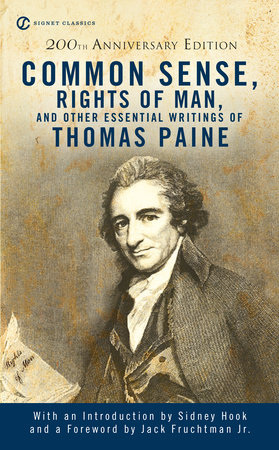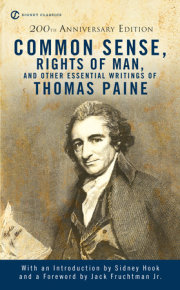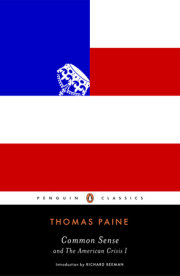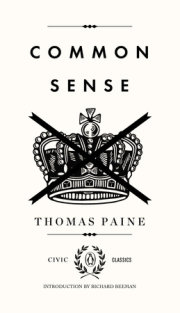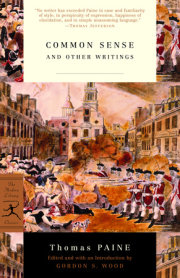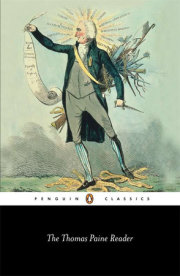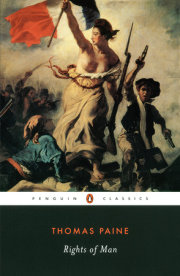Common Sense, Rights of Man, and Other Essential Writings of Thomas PaineForeword
Introduction
COMMON SENSEIntroduction
Of the origin and design of government in general
Of monarchy and hereditary succession
Thoughts on the present state of American affairs
Of the present ability of America
Appendix
The Crisis
Number I
Number III (Selections)
Number IV (Selections)
Number V
Number VII (Selections)
Number VIII (Selections)
Number XIII
Rights of Man
Part the First
Prefaces: To the French Edition; To the English Edition
Rights of Man
Declaration of the Rights of Man and of Citizens
Observations on the Declaration of Rights
Miscellaneous Chapter
Conclusion
Part the Second: Combining Principles and Practice
Preface
Introduction
Chapter I: Of Society and Civilization
Chapter II: Of the Origin of the Present Old Governments
Chapter III: Of the Old and New Systems of Government
Chapter IV: Of Constitutions
Chapter V: Ways and Means of Improving the Conditions of Europe, Interspersed with Miscellaneous Observations (Selections)
The Age of Reason
Part One (Selections)
Agrarian Justice (Selections)
Suggested Readings

